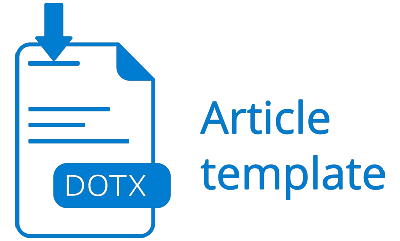Trade Off Ethics of Colonial Lecturers and Milenial Students in Critical Thinking in Indonesia Technology University (UTI) – Bali
Abstract
This study aims to find out the Ethics of Colonial Lecturers to understand Millennial students in communicating to be able to unite their perceptions, to find out Millennial Student Ethics hold and uphold custom and culture as a guideline in communicating or democracy critically in the education and community environment to create creative ideas in innovation, and to find out the Ethical Trade Off of Colonial Lecturers and Millennial Students in Critical Thinking to improve Communication and Teaching and Learning processes in the campus environment. This research was conducted through direct experience and observation in teaching. The research method used is descriptive qualitative approach and phenomenology. The main informants are 4 students and 2 lecturers. This research was conducted at Indonesia-Bali University of Technology campus. The research results obtained that through a personal approach and understanding, the character of millennial students and treating them as a friend, friend and even a child, from a lecturer, were able to make positive changes in the world of education. Because they feel valued and even given the opportunity to express their opinions and develop creative ideas, but within the boundaries of good ethics in accordance with eastern customs that we have. So that millennial children have a character that can bring them into critical thinking to grow and develop and innovate in accordance with technology.
References
Church, A. H., & Harahap, Z. (1993). Pompa dan Blower Sentrifugal. Jakarta: PT. Erlangga.
Elia, Y. (2016). Critical Thinking (Berpikir Kritis): Sebuah Pengantar. Retrieved from https://zilbest.com/filsafat/critical-thinking-berpikir-kritis-sebuah-pengantar/
Elistia. (2017). Ekonomi Mikro (Hubungan Pelaku Ekonomi Dalam Perekonomian). Jakarta: Universitas Esa Unggul.
Ennis, R. H. (2011). The Nature of Critical Thinking: An Outline of Critical Thinking Dispositions and Abilities. University of Illinois. Retrieved from https://education.illinois.edu/docs/default-source/faculty-documents/robert-ennis/thenatureofcriticalthinking_51711_000.pdf
Keraf, S. (2002). Etika Lingkungan. Jakarta: Buku Kompas.
Kim, K. H. (2007). Creativity. Singapore: World Science Publishing.
Latif, M. (2013). Pendidikan Anak Usia Dini. Jakarta: Kencana Prenada Media Group.
Lipman, M. (1991). Thinking in Education. UK: Cambridge University Press.
Mankiw N, G., Quah, E., & Wilson, P. (2012). Pengantar Ekonomi Mikro: Edisi Asia. Jakarta: Salemba Empat.
Moleong, L. (2008). Metodologi Penelitian Kualitatif: Edisi Revisi. Bandung: PT. Remaja Rosdakarya.
Nurdin, F. (2014). Pengantar Filsafat. Magelang: Panta Khei Books.
Sabdulloh, U. (2010). Pedagogik Ilmu Mendidik. Bandung: Alfabeta.
Susanto, A., & Wijanarko, H. (2005). Power Branding: Pembangunan Merek Unggul dan Organisasi Pendukungnya. Jakarta: PT. Nizan Publika.
Suyitno, I. (2012). Pengembangan pendidikan karakter dan budaya bangsa berwawasan kearifan lokal. Jurnal Pendidikan Karakter, 2(1).
Wartoyo, F. (2019). Etika Komunikasi Mahasiswa dan Dosen dalam Perspektif Akademis Revolusi 4.0. WASKITA, 3(2). https://doi.org/10.1017/CBO9781107415324.004
Wibowo. (2013). Manajemen Kinerja. Jakarta: Rajawali Press.
Zahir, A. (2011). Pengertian Pendidikan, Mendidik, Pembelajaran, & Mengajar.
Zuchdi, D. (2011). Pendidikan Karakter dalam perpektif Teori dan Praktik. Yogyakarta: UNY Press.
Copyright (c) 2020 Jurnal Ekonomi & Bisnis JAGADITHA

This work is licensed under a Creative Commons Attribution-NonCommercial-ShareAlike 4.0 International License.
 Abstract viewed = 255 times
Abstract viewed = 255 times
 PDF downloaded = 260 times
PDF downloaded = 260 times







